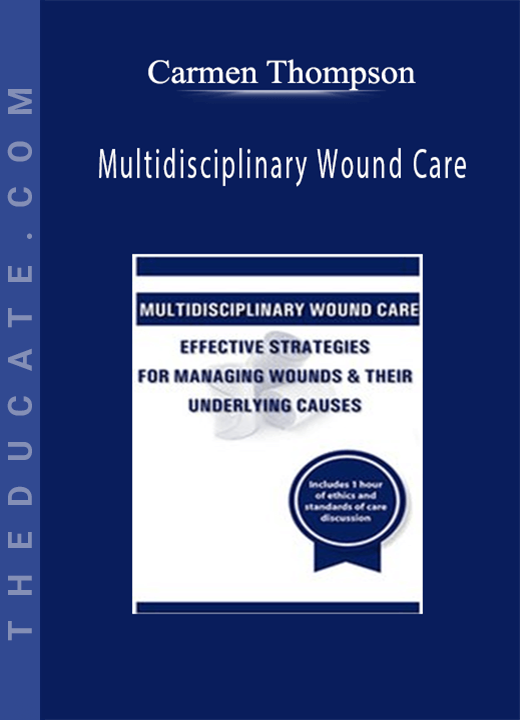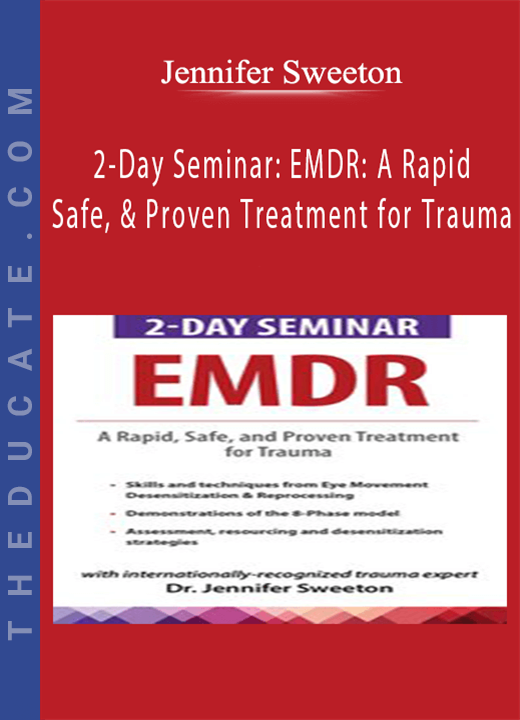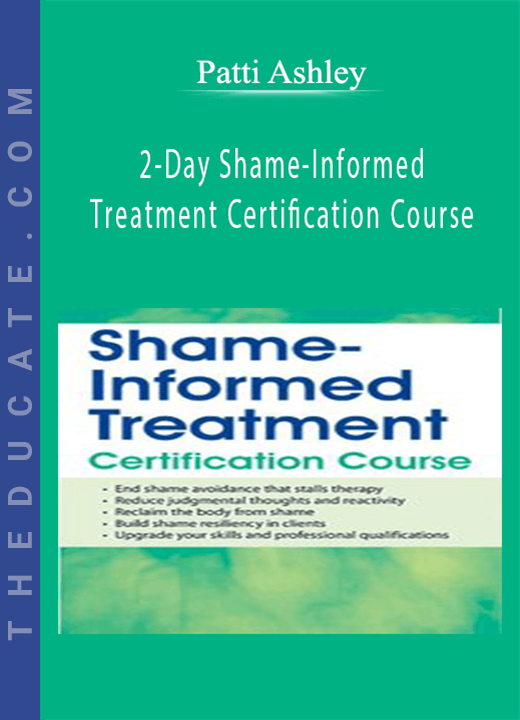Description
Multidisciplinary Wound Care – Carmen Thompson
Wound care is perceived as challenging and can cause angst among well intentioned therapists that don’t want to do “the wrong thing.” However, as insurance focuses on attempts to decrease chronic wounds due to the extreme cost of care, there is a push for all disciplines to be involved with this patient population.
This recording will give you multidisciplinary tools and protocols for properly assessing wounds, customizing treatments, and troubleshooting complications in order to facilitate faster wound healing. Explore patient/caregiver education models and clinical protocols designed to address underlying causes of chronic wounds. Watch today to learn how current treatments and therapy models are evolving to keep pace with the latest research, and return to work with a new foundation in wound care.
- Develop interdisciplinary treatment plans that integrate current best practices for wound care and result in cost savings
- Outline current wound healing fundamentals for achieving the best possible patient outcomes, from day one assessment to post-treatment follow-up
- Evaluate the anatomy and physiology of skin and other structures related to wound care, and differentiate between wound types
- Produce individual and team treatment protocols and prevention strategies for pressure ulcers, diabetic/neuropathic foot ulcers, acute wounds, and wounds from venous and arterial insufficiency
- Describe monitoring and documentation procedures that help reach goals for each type of wound.
- Identify the characteristics and goals of various types of wound dressings and properly select a wound dressing
Multidisciplinary Wound Care
- Standards of care, ethics and legalities
- Interdisciplinary care in a patient with a wound
- Why be involved in wound care?
- Considering cost, revenue, and insurance cost savings
Wound Healing Basics
- Anatomy and physiology of the skin and surrounding structures
- Stages of wound healing
- Factors affecting wound healing
Distinguishing Between Wound Types
- Acute
- Post-surgical
- Burns
- Trauma
- Chronic wounds
- Venous ulcerations
- Arterial ulcerations
- Testing — ankle-brachial index
- Pressure ulcers
- Diabetic/neuropathic ulcers
- Other, palliative, radiation
Now Let’s Make a Plan: Assessing and Planning for the Treatment of the Wound
- Assessment tools
- Tests
- Scales
- Measurements
- Labs
- Nutrition
- Functional needs of the patient
- Other factors affecting wound healing
Executing Your Treatment Plan
- Preparing the wound bed
- Is there infection?
- Do you need to debride?
- Is it wet or dry?
- Is the wound painful?
- How do we clean it?
- What topical?
- Dressings
- Is this treatment functional for the patient if possible?
- Is there edema present?
- How can we go above and beyond?
- Therapeutic modalities
Documentation
Team Communication, Monitoring, & Progress







11 reviews for Multidisciplinary Wound Care: Effective Strategies for Managing Wounds & Their Underlying Causes – Carmen Thompson
There are no reviews yet.